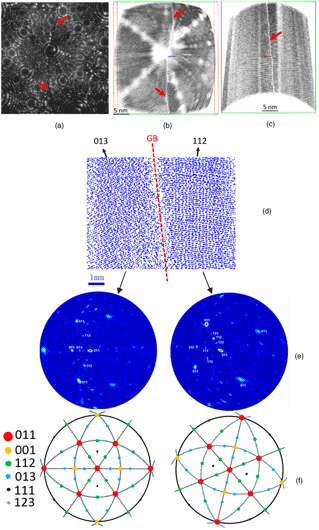Published online by Cambridge University Press: 10 March 2021

This article presents a fast and highly efficient algorithm developed to reconstruct a three-dimensional (3D) volume with a high spatial precision from a set of field ion microscopy (FIM) images, and specific tools developed to characterize crystallographic lattice and defects. A set of FIM digital images and image processing algorithms allow the construction of a 3D reconstruction of the sample at the atomic scale. The capability of the 3D FIM to resolve the crystallographic lattice and the finest defects in metals opens a new way to analyze materials. This spatial precision was quantified on tungsten, analyzed at different analyzing conditions. A specific data mining tool, based on Fourier transforms, was also developed to characterize lattice distortions in the reconstructed volumes. This tool has been used in simulated and experimental volumes to successfully locate and characterize defects such as dislocations and grain boundaries.